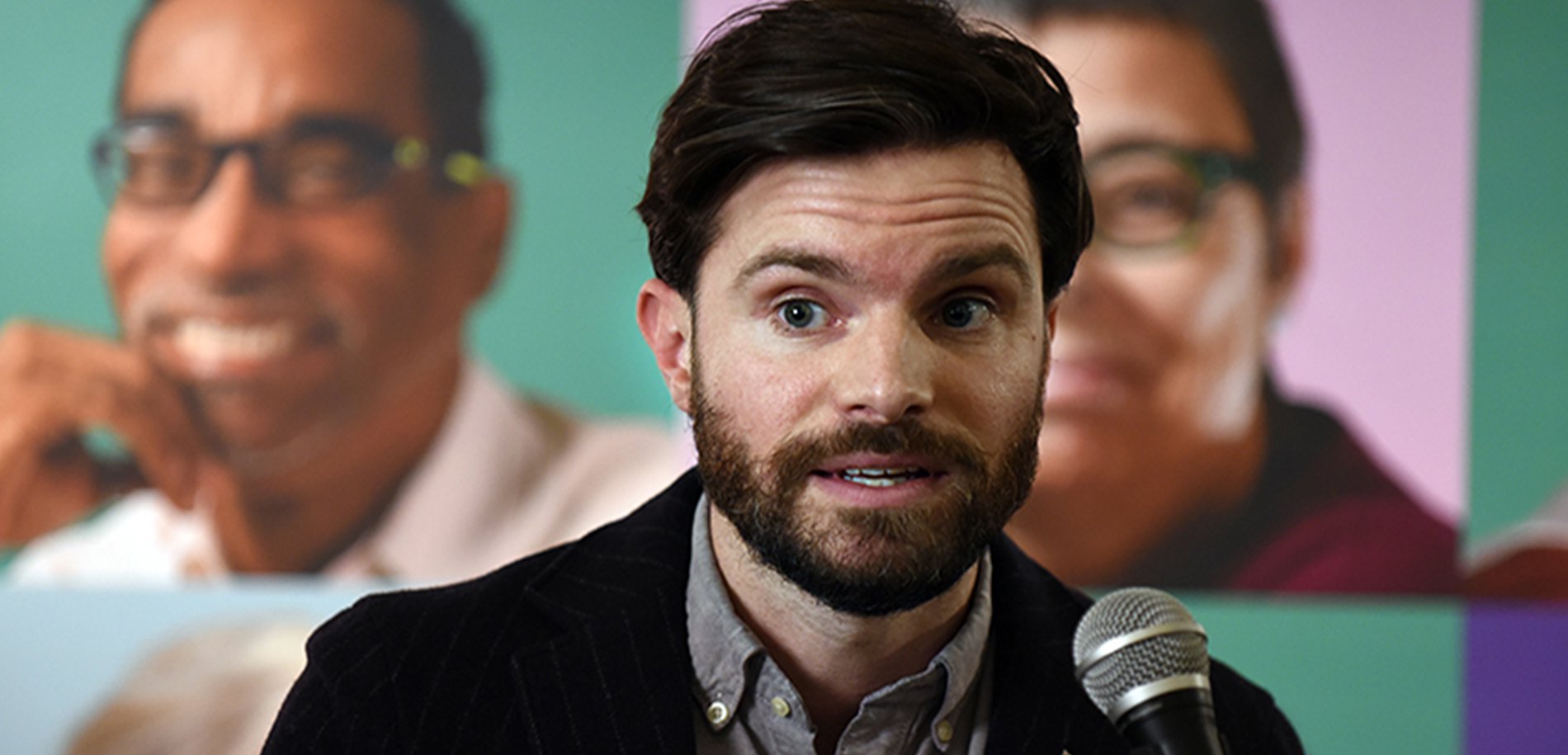Recognize Caregivers in the LGBT community
Julien Rougerie, project manager for Fondation Émergence, explains what are the issues and difficulties that seniors and caregivers in the LGBT community in Quebec still face today.
Julien Rougerie, project manager for Fondation Émergence, explains what are the issues and difficulties that seniors and caregivers in the LGBT community in Quebec still face today.

Definitely, recognizing the loved ones of the Lesbian - Gay - Bisexual - Transgender population (LGBT) and thus caregivers has always been included in our actions. Moreover, it is an important element in the official mission of Fondation Émergence. Caregiving is a real issue among LGBT seniors because they have often cut ties with their family, especially when their family has not accepted their sexual orientation or gender identity. So, they have replaced family support with their network of friends or their “chosen family.” It is this chosen family that often constitutes the main source of support, and thus caregivers.
We have indeed spoken about their role, their journey as caregivers. We asked them if they knew the support resources available and whether they had used them? Specifically, we asked them whether they had observed changes in their interpersonal and social relationships. We also wanted to observe what the impacts were of their sexual orientation and their gender identity on their caregiver situation.
Yes, because although the number of people interviewed was limited, their profiles correspond to what we have been able to map out through studies on LGBT caregivers: generally, they belong to a chosen family, do not identify themselves as caregivers and their LGBT identity or that of the care receiver is often a barrier to benefitting from certain services. It’s what we observe in our panel. They also provide a great deal of care and services themselves. They are afraid of using the resources in place, which are not necessarily perceived as welcoming or accepting of their realities or that of the care receiver.
The health and social services community is mostly heteronormative* and is not necessarily adapted to LGBT realities. For example, workers will assume that a senior is heterosexual by default and that the caregiver is a family member. Sometimes, this approach is even found on forms to be completed. These situations provoke discomfort and reluctance of the senior to reveal their LGBT identity, which can go so far as avoiding the services offered to them. On their side, caregivers want to save the care receiver from all the stress and potentially uncomfortable situations and will therefore provide as many services as possible themselves; so, there is an increased risk of burnout.
* Heteronormativity implies heterosexuality as the norm. This belief, which is based on the notion of the majority norm, is often at the root of homophobia.
Raising the awareness of those who provide services to seniors and caregivers is essential. That's what we offer with the Pour que vieillir soit gai program, through our trainings and our awareness-raising tools, such as our guides, our posters and our Charte de la bientraitance envers les personnes aînées lesbiennes, gaies, bisexuelles et trans.
The idea is to help workers adapt their approach toward LGBT seniors, to better meet their needs and thus those of the caregivers who support them.
We are also working on developing a new program that would be specifically dedicated to supporting LGBT caregivers because they often don’t identify themselves as caregivers and do not access the services from which they could benefit.
For two years, Julien Rougerie has been the project lead for Fondation Émergence, which has a mission to educate, inform and raise the awareness of the public about the realities of lesbian, gay, bisexual and transgender (LGBT) people. In particular, he is responsible for the Pour que vieillir soit gai awareness program, which is designed for institutions and service providers to LGBT seniors. We met with Julien Rougerie as part of the 10th anniversary of the program and interviews with LGBT caregivers.
Need to talk?
Contact our Caregiver Support Helpline for counselling, information and referrals.
Every day from 8 a.m. to 8 p.m.
Free of charge.